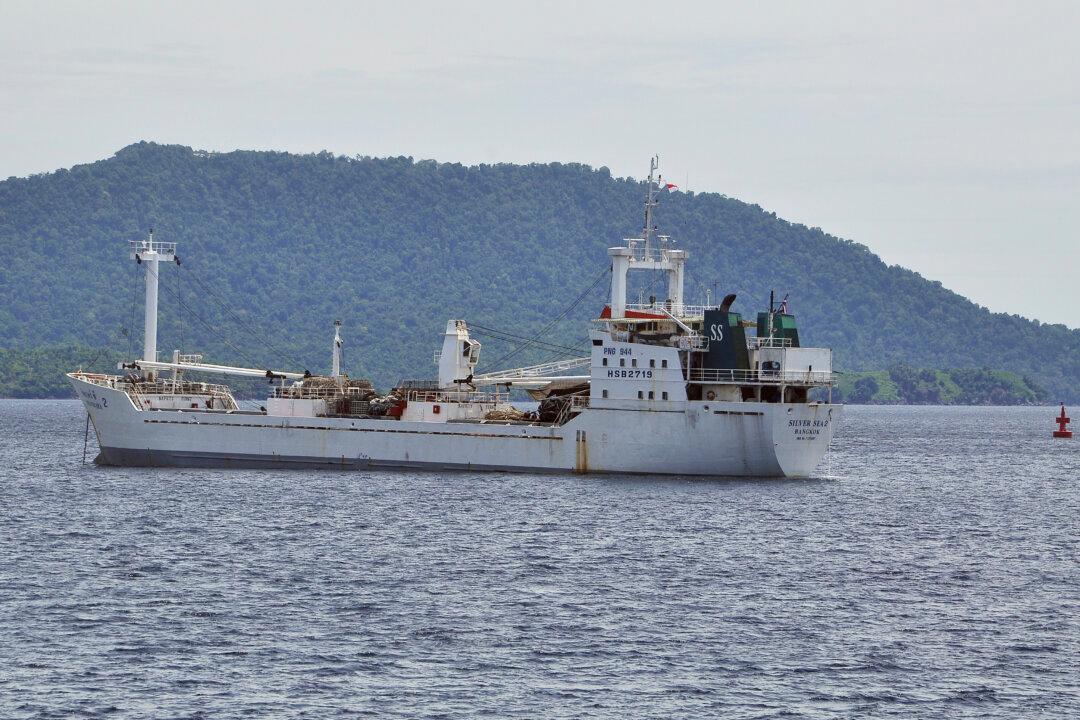JAKARTA, Indonesia—A massive refrigerated cargo ship believed to be loaded with slave-caught fish was seized by Indonesia’s navy and brought to shore Thursday, officials said, after The Associated Press informed authorities it had entered the country’s waters.
The Thai-owned Silver Sea 2 was located late Wednesday and escorted about 80 miles (130 kilometers) to a naval base in Sabang on the Indonesian archipelago’s northwestern tip, said Col. Sujatmiko, the local naval chief.





